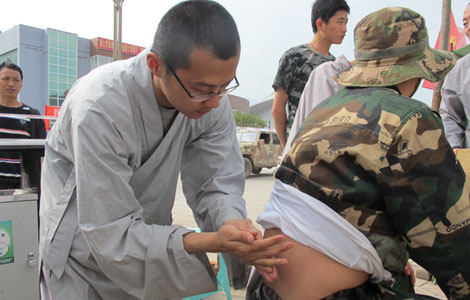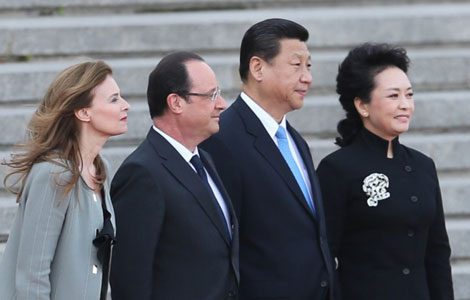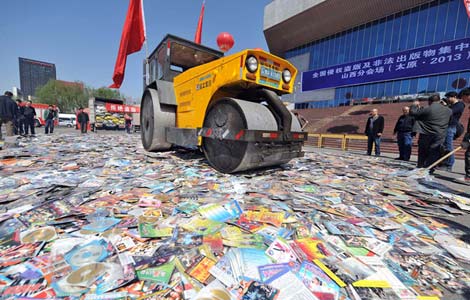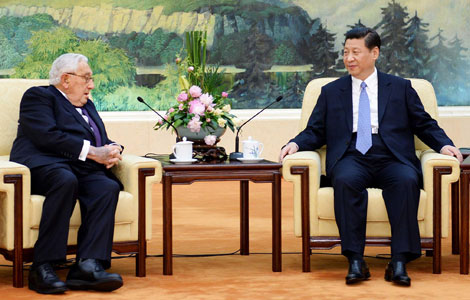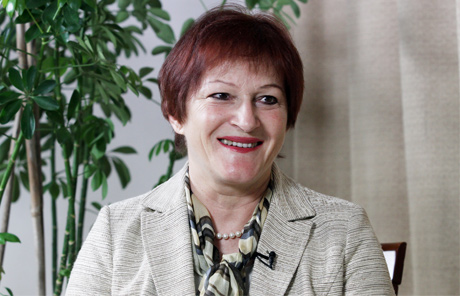Syria likely used chemical weapons, US says
Updated: 2013-04-27 07:39
(China Daily)
|
||||||||
The White House said on Thursday that Syria had likely used chemical weapons against rebel forces on a "small scale", during the conflict that has been raging in the country for two years. However, it emphasized that United States-based spy agencies were still not 100 percent sure.
US Defense Secretary Chuck Hagel, who was on a visit to Abu Dhabi, the United Arab Emirates, issued a statement on the latest development saying that the conclusion was made in the past 24 hours after an assessment that took some time.
"We cannot confirm the origin of these weapons, but we do believe that any use of chemical weapons in Syria would very likely have originated with the government," the secretary said.
The United Kingdom said it has "limited but persuasive" evidence of the use of chemical weapons in Syria, including sarin gas.
US President Barack Obama recently set a red line over chemical weapons, warning time and again that the Syrian government's use or failure to secure them will be a "game changer" in his calculation on policy toward the Arab nation.
Yet, the White House made it clear that the world will not act before having "credible and corroborated facts" about the use of chemical weapons by the Syrian government in its conflict with the opposition forces.
UN urged to act
Syria's opposition on Friday urged the United Nations Security Council to take immediate action after the US said for the first time the government probably used chemical weapons.
"It is time for the UN Security Council to act" on Syria, an official from the main opposition National Coalition said on condition of anonymity.
On April 8, Syria refused to accept a chemical weapons team, as proposed by UN chief Ban Ki-moon, to probe the alleged use of chemical weapons.
The Syrian government acknowledged for the first time on July 23 that it had chemical weapons and threatened to use them in case of a Western military intervention, but never against the Syrian population.
Damascus and the armed opposition accuse each other of having used chemical weapons during the conflict.
Syria is one of the few countries not to have signed the Chemical Weapons Convention and is believed to have a large stockpile of sarin and other nerve gases.
According to an analyst at the International Institute for Strategic Studies, at stake is the biggest chemical weapons program in the Middle East, created at the start with the goal of counterbalancing Israel's nuclear program.
The analyst said information on the program has been collected following the defection of some Syrian military officers, but that the information is "far" from being complete.
On Jan 30, the Israeli air force bombarded a site of ground-to-air missiles and an adjacent military complex near Damascus suspected of holding chemical agents, with Israel saying it feared the transfer of chemical weapons to the Lebanese Shiite movement Hezbollah, according to a US official.
According to the New York Times, the raid could have damaged Syria's main research center into biological and chemical weapons.
Xinhua-AFP-AP
Most Viewed
Editor's Picks
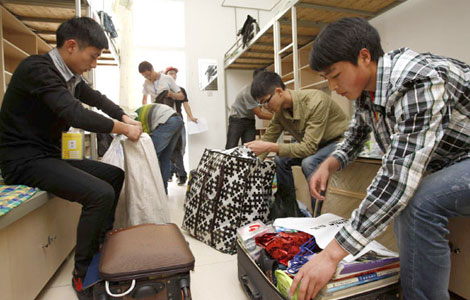
|

|

|

|

|

|
Today's Top News
Baoxing gets back to business, but fears linger
Innovation key for China, France
Six more H7N9 bird flu cases reported in China
China cuts gov't intervention to push reforms
Beijing rejects Manila move
Details on violent clash in Xinjiang
China reiterates to resolve territorial disputes
Phone bookings for taxis in Beijing
US Weekly

|

|
